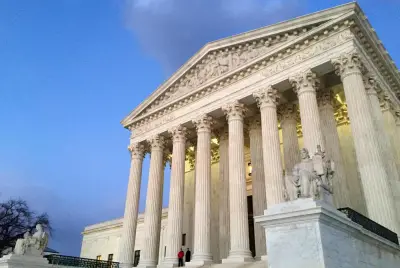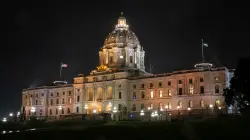Noah Feldman: Supreme Court understands the assignment on birthright citizenship

The oral argument before the Supreme Court related to President Donald Trump s executive order on birthright citizenship focused on whether a single district court has the authority to issue a nationwide injunction telling the administration what it can or can t do The best reading of the justices questions is that although they are concerned about giving too much power to a single district judge they are more worried about Trump s contempt for the rule of law It appears the justices will find a way to allow such orders in at least specific circumstances like Trump s egregious executive action purporting to end birthright citizenship And ultimately it s extremely likely they will strike it down as violating the Fourteenth Amendment likely sometime next year What made the current episode so strange and the argument so dramatic is that any rational Department of Justice would have tried to avoid bringing it to court at all Yet Trump s solicitor general John Sauer pressed it on the justices who held a special oral argument to consider it Justice Elena Kagan a solicitor general under former President Barack Obama bluntly pointed this out commenting that if she were in Sauer s shoes she would have tried to keep the situation out of the court The reason not to bring this particular matter is that numerous of the justices have long been concerned about what are called universal injunctions defined roughly as orders given by a court that cover the whole country The directives allow someone challenging the legality of an executive action to get a single district court judge to block the action unilaterally So if you were the solicitor general and required to convince the Supreme Court to abolish the practice you would bring a event in which the judicial order in question was doubtful and the stakes were low That would allow the justices to dig deep on the technical questions of whether lower court judges really have that much power and how best to rein them in The birthright citizenship incident is at the opposite extreme It s obvious as a matter of law that the Fourteenth Amendment grants birthright citizenship It says so right in the text and precedent going back to agrees No justice at the oral argument made any attempt to suggest a different constitutional interpretation And the stakes are enormous They matter of class to everyone born in the US to non-citizen parents But they matter even more to the larger question of whether Trump can get away with flouting the law and then dance around court injunctions that tell him to stop That s what he s been doing on issues from deportation to executive funding to the firing of federal employees and beyond The upshot is that the whole oral argument took place against the backdrop of the justices worries that Trump might ignore legitimate court orders Justice Samuel Alito tried to get the court to leave aside the underlying merits question about the Fourteenth Amendment and think only about universal injunctions in general That was an uphill battle under the circumstances Trump s lawlessness loomed over the proceedings and its presence weakened Sauer to the point where it seemed fairly certain that the court would find chosen way to leave the lower court order in place Even conservative Justice Neil Gorsuch who clearly doesn t care for universal injunctions appealed Sauer How would you get the merits of this occurrence to us promptly The implication was that he wants to make sure Trump s order is struck down by the justices expeditiously before it does real-world harm The the bulk likely explanation for Sauer bringing the matter despite it being disastrous was that Trump yearned him to He also apparently figured correctly that he would be hammered less hard by the justices for attacking universal injunctions than he would be for insisting that the Constitution doesn t guarantee birthright citizenship The justices have expressed skepticism about universal injunctions in the past In a perfect world various maybe bulk of them would have preferred to rule that district courts can t ever grant them But Trump s conduct this term seems to have forced a majority to recognize that courts need tools to stop him from current the law and creating situations that can t easily be reversed That s what has happened in the incident of the Venezuelans unlawfully deported to El Salvador This argument marked the first time we ve heard the justices speaking directly about one of president s lawless executive actions It won t be the last The Supreme Court seems to understand the assignment protect the rule of law from Trump s threat All else is secondary Noah Feldman is a Bloomberg Opinion columnist A professor of law at Harvard University he is author the bulk not long ago of To Be a Jew Currently A New Guide to God Israel and the Jewish People

